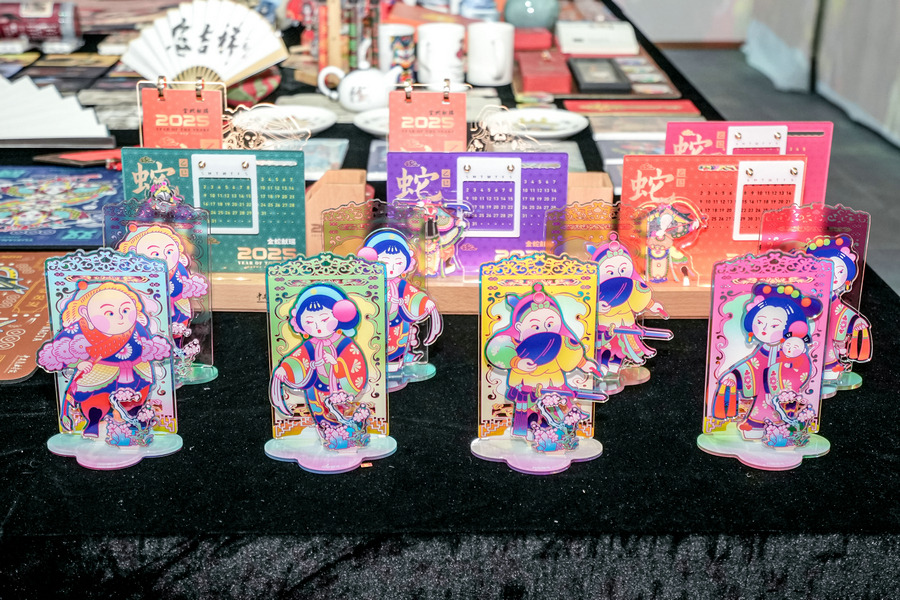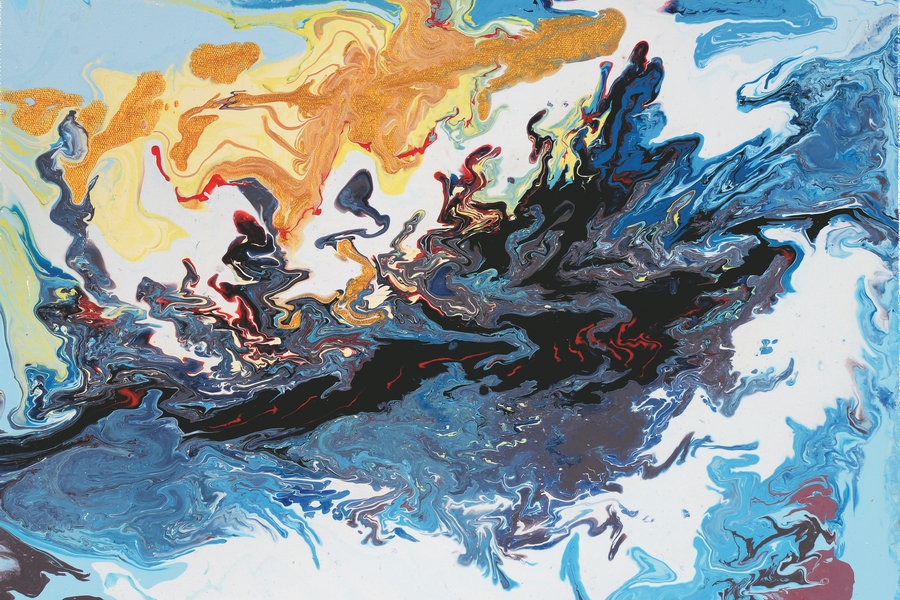Comic shows humor is best medicine


Some foreigners, such as tourists, workers and students, shared one common trait; they chose to stay in Wuhan, Hubei province, when the novel coronavirus outbreak occurred. They all have different reasons, but again share another thing in common; they are looking forward to the end of the city's lockdown on April 8.
British comic Nigel Dixon is one of them.
He arrived in the city on Jan 2 as a tourist, hoping to experience the traditional Spring Festival about three weeks later.
However, the pandemic disrupted his plans, and no one was allowed to leave the city as public transport was shut down.
Dixon has been confined to a 23rd floor apartment since then.
He is a professional impersonator of Mr Bean, the world-famous bumbling figure played by British actor Rowan Atkinson.
For the past few months, Dixon has become a web celebrity in China for documenting his life in Wuhan on popular Chinese short video platforms Douyin and Kuaishou.
He has attracted roughly 17 million fans, and Chinese followers love to see his humorous rendition of Mr Bean.
In early March, the Chinese reality show Top Funny Comedian broadcast a short video filmed by Dixon at his apartment in Wuhan, of a finger dance performance to encourage Chinese people.
As Wuhan will end its lockdown soon, he has decided to spend more time in China. He will stay in Wuhan for the time being, but has already been invited to visit other Chinese cities.
"I have been supporting millions of Chinese people with my online short videos throughout this special moment ... and their kind feedback has encouraged me to feel loved and a part of the greater China family," he says.
British Prime Minister Boris Johnson recently announced that the government is strengthening measures to fight the COVID-19 outbreak by asking all cafes, pubs and restaurants to close, except for take-away food.
Dixon agreed that a stronger approach should be taken.
"It's important to take measures to ensure that the impact of the virus, which is invisible, is as small as possible," he says.
"While people in China think collectively, it's more individual thinking in Europe. When people think individually, you start to get differences of opinion. Some people may neglect the impact of the virus and think they won't be infected," he says.
According to Dixon, compared with Asia, wearing a mask isn't a natural thing to do in Europe. The only occasion that Europeans come across people wearing a mask is in a hospital. It's essential to overcome that obstacle and think "safety first", he says.
"I'm surprised to find that there are many misplaced judgments. I heard of foreign countries judging China because the virus was first identified here, but the reality is that it could happen anywhere in the world," he says.
"We're one big global family and everyone has their own responsibility to fight the virus. Here in China, the perfect model has now been created for other countries to learn from, not only for now, but in my opinion, the future," he says.
"From what I've experienced in Wuhan, the government has taken various measures against the virus on a massive scale. People outside China will never understand that fully," he says.
According to him, the people in Wuhan have the strength of character to overcome the challenge and are self-disciplined.
When the United Kingdom was withdrawing its nationals from Wuhan earlier on, he chose to stay instead of catching a plane.
In his opinion, if he went back to the UK, he would run the risk of catching a virus and it would be selfish of him to pass on the virus to others.
"Your first thought is often the wrong one. When you're making quick decisions, you'd better sit back and take your time to think it through," he says.
"At first, I felt insecure, uncertain and a bit of fear. With many Chinese worried about me online, I started to settle down and realized that I could be living here in isolation for some time," he says.
During his quarantine, he continues to make short films in order to show his love and care for the people of Wuhan, promoting safety measures in a fun and entertaining way. His Chinese friends help him to add Chinese subtitles and post them online.
"Laughing is probably one of the biggest, most natural drugs to bring good health. I try to share my positivity with everyone," he says.
Thinking of video ideas has occupied his mind for a great deal of time, but it has helped him get through this extraordinary period.
"As the time goes on, the people in Wuhan will be able to use this inner strength that they've built during this time for challenges that will face everyone in life. That's a great reward for everybody."






































